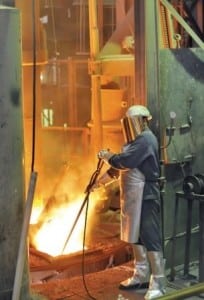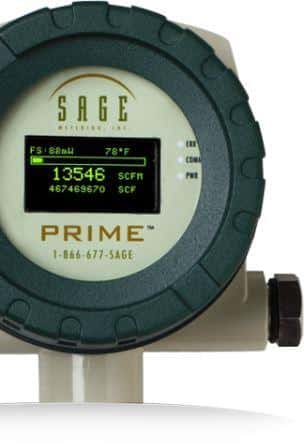Thermal mass flow meters are used in steel production to save energy in combustion control, compressed air, and nitrogen monitoring. Additionally, the thermal flow meter is ideal for monitoring natural gas, nitrogen, and argon to improve product quality and conservation.

Steel Production and Combustion Control
Steel processing uses vast amounts of energy. One of the most important ways to reduce energy consumption is to optimize the combustion control of the boilers and furnaces. Optimal air-to-fuel ratios are achieved when monitoring the burners’ air (or oxygen) and fuel rates. This practice significantly reduces natural gas (or propane) energy costs and improves process efficiency, product quality, and yields.
Thermal mass flow meters are ideal instruments for this application. They do not require separate temperature or pressure transmitters, have no moving parts, are highly accurate and repeatable, and have negligible pressure drop. Furthermore, thermal mass meters have extraordinary rangeability of at least 100 to 1 and fast response, all of which are critical features in optimizing combustion control.
Compressed Air or Nitrogen Flow Monitoring
Steel production also has many applications for compressed air flow monitoring. Additionally, some manufacturers prefer to use nitrogen instead of air since air contains significant oxygen, which reacts with steel at high temperatures and forms oxides. In either situation, thermal flow meters are ideal for monitoring these gases.
Monitoring Nitrogen and Argon
In addition to thermal mass flow meters for combustion, they are important elements in the actual process. Monitoring the nitrogen and argon flow rate for the bottom stirring of molten steel helps to eliminate bubbles and other impurities. The proper mix of nitrogen and argon directly impacts the quality of the steel. The Sage Prime Thermal Mass Flow Meter, with dual-range calibration, is a perfect solution for this critical application.
Monitoring Natural Gas
Natural gas is used throughout steel production in various processes, including heating the steel.
Perhaps you’re interested in: Aluminum Fabricator Benefits from a Flow Meter with Bluetooth.


